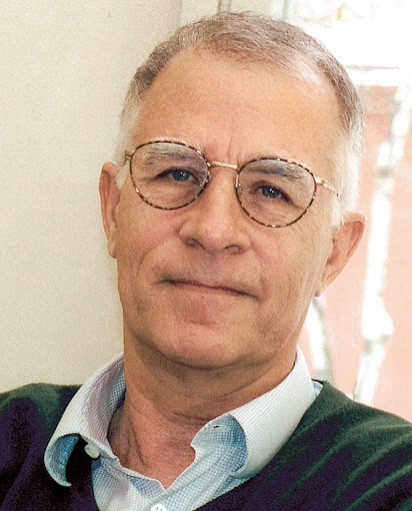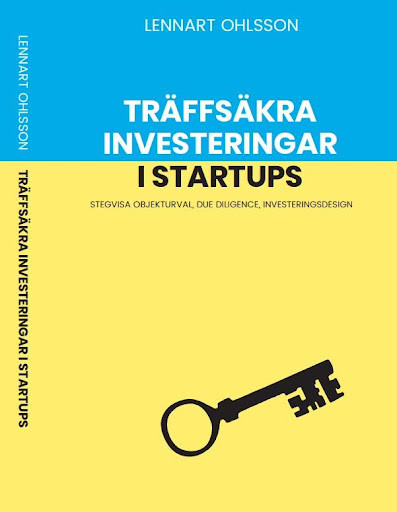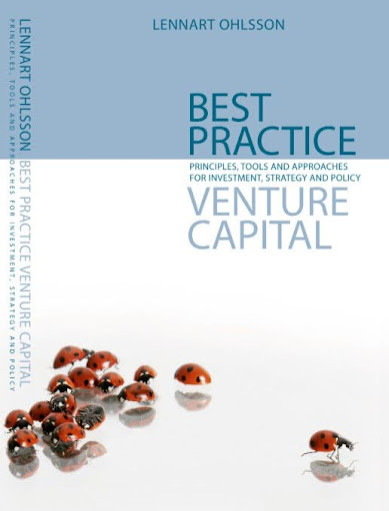
Renowned venture capital expert and economist Lennart Ohlsson has announced the upcoming release of his third book, part of a conceptual trilogy focused on the evolution of best practices in startup investment. Ohlsson's latest work aims to equip lead investors with frameworks and tools that bridge intuition and analytical rigor, helping them become effective catalysts in transforming advanced technology ventures into market-ready companies.
"My goal is to provide readers, particularly those with ambitions of becoming high-caliber lead investors, with a framework that blends logic and intuition into a single, operational investment philosophy," Ohlsson states.
In this new volume, Ohlsson refines and expands upon themes he introduced in his earlier books. Best Practice Venture Capital (2006) has provided foundational principles and tools for structuring investment strategy. Meanwhile, Träffsäkra Investeringar i Startups (Accuracy in Startup Investments), published in 2018, has become an accessible, step-by-step guide to selecting, analyzing, and financing early-stage ventures. His latest effort goes deeper, offering practices tailored to complex, high-tech startups or what he calls "SciTechs."

Structured into methodical chapters, the book outlines a comprehensive, interlinked methodology for due diligence that maintains internal consistency across all compartments. From market analysis to technological viability, it ensures that the narrative of a startup aligns logically across its various components.
Building on his belief that successful investing isn't a purely logical exercise, Ohlsson references the dual-system thinking model made popular by Nobel laureate Daniel Kahneman. He explains that effective lead investors must learn to integrate both systems of the brain: the intuitive, emotion-driven decision-making that many angel investors rely on, and the deliberate, analytical reasoning typically employed by economists. Ohlsson introduces his interpretation of "expert intuition." It's a concept derived from decades of experience, where structured knowledge enables an investor's instincts to be more reliable, even in uncertain, rapidly evolving contexts.
The book also includes a case study on Polar Light Technologies (PLT), a Swedish deep-tech startup that Ohlsson supported as a senior business advisor. It traces a multi-year journey from initial pitch to significant technological milestones, including a breakthrough in micro-LED development. PLT serves as a model for the book's overarching thesis: that Sweden's investment culture lacks sufficiently structured lead investors capable of navigating high-risk, high-reward SciTech ventures.
"Many U.S. accelerators emphasize speed and milestone-driven progression. Sweden's early-stage ecosystem often favors a risk-averse strategy of narrowing focus too early. It's a low-hanging fruit approach that can ripple long-term potential in complex startups with multiple market pathways," Ohlsson says.
The PLT case unfolds across a period of intense collaboration. A five-person leadership group, comprising the founder, a business developer, a recruited CEO, and Ohlsson himself, operated as an informal accelerator team. Weekly strategy sessions were used to make fast and informed decisions while the formal board maintained oversight.
What made PLT particularly challenging and instructive was its dual-core technology, each with large market implications. Navigating product development, market timing, and investor negotiations required a balance between flexibility and strategic focus. For example, it took nearly a year to diagnose and resolve a proof-of-concept failure tied to a reactor design flaw, illustrating how lead investors must also be willing to operate at a granular technical level when needed.

Throughout the book, Ohlsson anchors his insights in both theory and practice, referencing his formal economic training and over 40 years of hands-on experience guiding startup investment. His background as a founder of multiple angel-based venture funds, including the Sustainable Energy Angels and the Stoaf Group, informs the design of the strategic frameworks he presents. Rather than merely offering anecdotes, Ohlsson emphasizes how parts of an investment process interrelate, and how that relationship affects outcomes.
Ohlsson's third book, slated for release next year, promises to be a culmination of decades of theory, practice, and reflection. It's an essential resource for those ready to shape the future of deep-tech investment in Sweden and beyond. Meanwhile, in line with his educational philosophy, Ohlsson has also leveraged LinkedIn as an integrated platform for early thought development. Many of the core ideas, tools, and even drafts of chapters appeared first as posts or articles, providing ongoing engagement with readers and professional peers.







